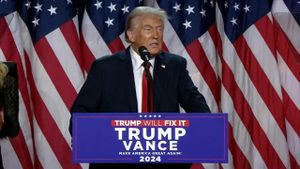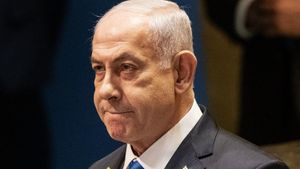Israel is on the brink of approving a ceasefire agreement with Hezbollah, marking a significant potential pause after over a year of intense conflict. Prime Minister Benjamin Netanyahu announced his backing for the deal mediated by U.S. and French diplomats, stating it could open up opportunities to focus on broader Iranian threats and allow for military replenishment. This proposal aims to establish a 60-day ceasefire during which both Israeli forces and Hezbollah would withdraw south of the Litani River in Lebanon, creating space for the Lebanese Army to regain control over the southern region. "The length of the ceasefire will depend on what happens on the ground," Netanyahu said, emphasizing Israel's readiness to respond forcefully if Hezbollah breaches the agreement.
Hezbollah's activities have significantly escalated since October 2023, shortly after Hamas's assault on southern Israel triggered cross-border exchanges of fire. More than 3,800 people have died as a result of the conflict, which has turned parts of Lebanon, particularly areas under Hezbollah’s influence, unrecognizable. Both sides have sustained heavy losses: Hundreds of thousands of displaced residents and significant infrastructural damage have left communities on both sides grappling with humanitarian crises.
Throughout this turbulent period, Netanyahu has continuously articulated the strategic necessity of suppressing Hezbollah's capacity to act. "If Hezbollah seeks to rearm or conducts any terror activities near our borders, we won’t hesitate to strike back," he warned during his televised address. This military posture reflects Israel's intent not only to deter Hezbollah but also to prevent Hamas from reestablishing support from the Iranian-backed militia. With Hezbollah appearing weakened but still intact after losing several high-ranking leaders to Israeli airstrikes, Netanyahu's administration believes stability can be established once the pressures of cross-border conflict are alleviated.
This ceasefire proposal arrives amid heavy airstrikes conducted by Israel within Lebanese territories, particularly focusing on Hezbollah strongholds across Beirut, which ironically have intensified just as ceasefire discussions advanced. Israeli forces have ramped up military operations, showcasing the complexity of disengaging from sustained military engagement. Although reports suggest enthusiastic support from Netanyahu’s cabinet as well as Washington, dissenting voices within the Israeli parliament caution against any cessation of hostilities without stringent controls imposed on Hezbollah’s activities going forward.
"This agreement does not sufficiently disarm Hezbollah, nor does it provide the necessary guarantees for future security, which has left some ministers like Avigdor Lieberman arguing against the deal," commented one political analyst. Another significant point raised involves the need for U.S. endorsement; Israel requires explicit support to protect its interests should Hezbollah disregard the ceasefire. The withdrawal of Hezbollah from the south of the Litani would be pivotal not only for Israeli security but also for restoring some semblance of order for the displaced populations.
The situation remains fraught as Hezbollah’s leadership has indicated they might accept the ceasefire if it respects Lebanon’s sovereignty and includes provisions preventing future incursions. The ambiguous dynamics of the agreement provoke questions about how effectively the Lebanese Army could assert control over Hezbollah, especially since it operates independently of the Lebanese government. Amid political maneuvering and external pressure, momentum for the ceasefire continues to build, leading to hopes for de-escalation.
Overall, the proposed truce presents a complicated interplay of military readiness and diplomatic strategy, reflective of the long-standing and often volatile relationships among the nations involved. With lives at stake, residents on both sides continue to anxiously await the outcome of these negotiations, as fierce exchanges cast looming shadows over the northern region.



